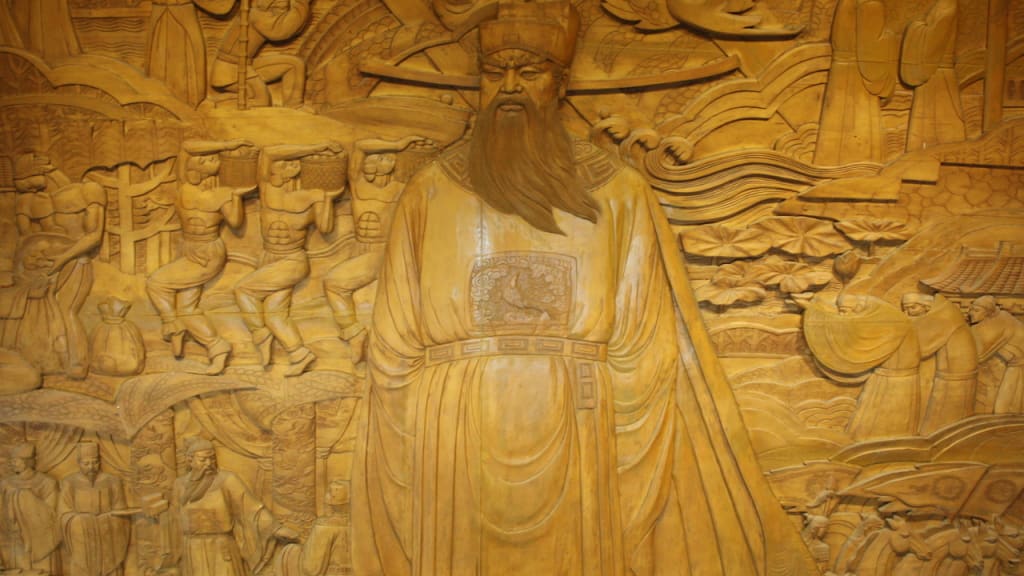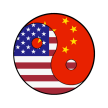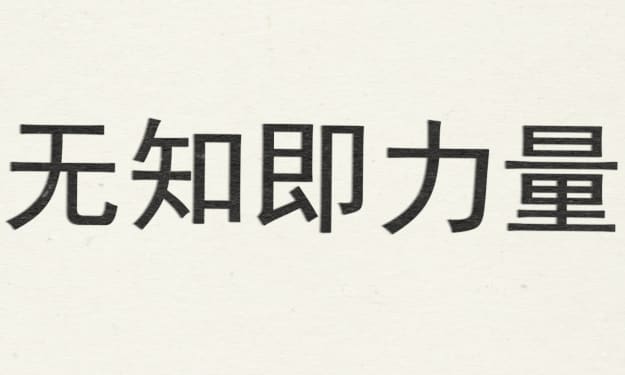A Crisis of Harmony
What does it say that a majority of Americans want to exclude Chinese students?

It's not the only result from that survey, and I imagine that for most people, it won't be their takeaway. To me, though, this is the piece of information that stopped me cold, that grabbed me by the face and wouldn't let go. A majority of Americans want to keep Chinese teenagers out of the country, and that's simply the state of affairs in 2021.
Pew never asks why so many people are determined to keep Chinese students out, leaving us to dream up possible answers for ourselves. It could be retribution, some weird retaliatory strike against the Chinese government. It could be nationalistic fervor - instead of the foreigners taking our jobs, now they're taking our college admissions spots. No doubt there are some who are just straight-out racist. And there are those who fear that these students are spies, an utterly deranged notion - though not deranged enough to stop then-Secretary of State Mike Pompeo for suggesting it.
I want to take a moment to let that last bit of information steep. Pompeo - perhaps one of the most underrated villains in Donald Trump's cabinet of daylight nightmares - wants you to be afraid of Chinese 18 year-olds. And based on those polls, a not insignificant number of people are feeling that fear.
I've spent a decent part of my life working with those same Chinese young people - both in the United States and in mainland China - and there is perhaps no group of people less frightening on planet Earth. Who should I suspect more - the men who spend all their free time watching other people play League of Legends, or the women who are always broke because they spend every dime on milk tea and stuffed animals? Should I cringe when one of them gives up their seat to an elder out of deference, a witness to that nefarious "magic weapon" of simple decency?
The bitter jokes are a defense to something I truly don't understand - and I thought I understood xenophobia. Growing up in a small, homogeneous community, I certainly encountered it, in forms both subtle and gross. It sprawled across the entire nation during the age of the War on Terror, as otherwise intelligent, sensible people lost themselves in collective dread. Back then, people were very open about their desire to keep them away. So maybe this shouldn't be a surprise.
Then again, maybe the surprise isn't the sentiment so much as the cold nature of it.

History May Not Repeat Itself...
There's been a lot of talk about anti-Asian bigotry lately, almost all of it - as is so often the case in our media environment - focused on the most despicable examples. Folks have been tracking this for over a year now, but conversation was sparse until people started assaulting the elderly. Stories like that make for good business - they leap off the screen, boil the blood, get people howling in outrage. Nothing spreads quite like outrage, and there's little that provokes outrage as much as some racist shoving an octogenarian into the street.
Outrage does something for us on the consumer end as well - it gives us a rush of morality, a self-righteous high that lets us feel better than others for a time. All well and good, but from the plateau of this artificial moral high ground, it can be easy to rationalize away our own fears and biases. That's the risk you take when you dwell in extremes - nothing else has the same impact. It's very easy for a person to say "It's horrible that anyone would beat an old man like that" and then follow it up "...but that doesn't mean we can't take measures to keep the bad ones out."
That's the other shocking part, that a nation allegedly so sensitive to its history would so casually talk about exclusion like this. Many people are familiar with the Chinese Exclusion Act of 1882, but that wasn't even the first time we tried to close our borders to the Chinese. In 1875, there was a more narrowly designed law, the Page Act, that was meant to "keep the bad ones out." In this case, that meant people from East Asia falling into one of three groups: Slaves, criminals and prostitutes.
Ah, but that last part did some real heavy lifting. "Prostitute" is, in many ways, the post-Enlightenment equivalent of "witch" - a convenient word to get rid of an inconvenient woman, and with a bare minimum of proof demanded. Under the Page Act, it was extremely difficult for Chinese women to immigrate to the U.S., to the point where it served as a de facto ban. Incidentally, those women being turned back were, by and large, the wives of Chinese men already in the States, so this law had the major effect of splitting up families. History does tend to rhyme, as they say.

Education as Diplomacy
This time, though, we're not talking about excluding criminals, but students - students that some seem to believe are incognito criminals - and it's here we must talk about the importance of education as a means of informal diplomacy. American institutions of higher learning are world famous, and that's particularly true among the Chinese. To attend an American university is great; to attend an American high school, even better.
Young people here are in a constant struggle to earn a place in a foreign university, for the advantage it given in such a highly competitive society is so great. I've had people seek me out, hoping that I can help them gain an edge in that competition. On the higher end, that might mean teaching an actual college course on the IELTS language test, aimed at helping them earn a score that will qualify them for an overseas placement. On the less honorable end, it might mean coaching someone through an interview in which he says words that he clearly does not understand at all. Such is the zeal for access to an American diploma, that one will try and trick his way into a university and then hope to learn the language fast enough to graduate.
But there's been some competition in recent years, as the entire English-speaking world aims to get their share of international scholars. Many Chinese people soured on the United States during the Trump years, which opened up some new avenues - for the English to brag about their own famous institutions, for the Australians to advertise their universities as more accessible and friendly. The number of Chinese students in the U.S., while still very high, has been on the decline in recent years, with many students showing a preference for Canada or the UK.
Knowing this, why would we choose to injure ourselves like this? It's the kind of thing I want to ask to all the people who agreed to this mad notion - to that 47% of college graduates, that 56% of Hispanics, that 42% of Democrats, and above all to the roughly one-quarter of people who say that foreign students are great, but no Chinese, please. At a time when our reputation is so thoroughly stained, why would you want to take away one of the bright spots we still have?
So What Comes Next?
I am not, in general, an optimistic person. A few months ago, while doing research for a documentary short, I found polling suggesting that American and Chinese opinions of each other were as low as they'd been in decades, with very strong mutual distrust. Most of the people I talked to assumed that Trump's departure would fix this, but I wasn't so sure.
Sometimes you're not happy to be right.
If, on the other hand, you are one of those truly hopeless types who insists on believing that the future might be better than the present, then there is one positive takeaway from this particular survey. The group of people with the lowest support for restricting the U.S. to Chinese scholars are people under the age of 30, 66% of whom oppose such restrictions. This is legitimately good, and I can only imagine that many of these people are themselves students who have regular interactions with other students from many countries - the PRC included - and don't find them scary.
It could be that this narrow reed - this handful of Americans who aren't repulsed by foreignness, who aren't terrified of different ideas - will be strong enough to support us. Pray that this is the case. I couldn't tell you what the future holds, but I'm sure that a future with healthier Sino-American relations is a hell of a lot better for all of us.
About the Creator
Andrew Johnston
Educator, writer and documentarian based out of central China. Catch the full story at www.findthefabulist.com.






Comments
There are no comments for this story
Be the first to respond and start the conversation.